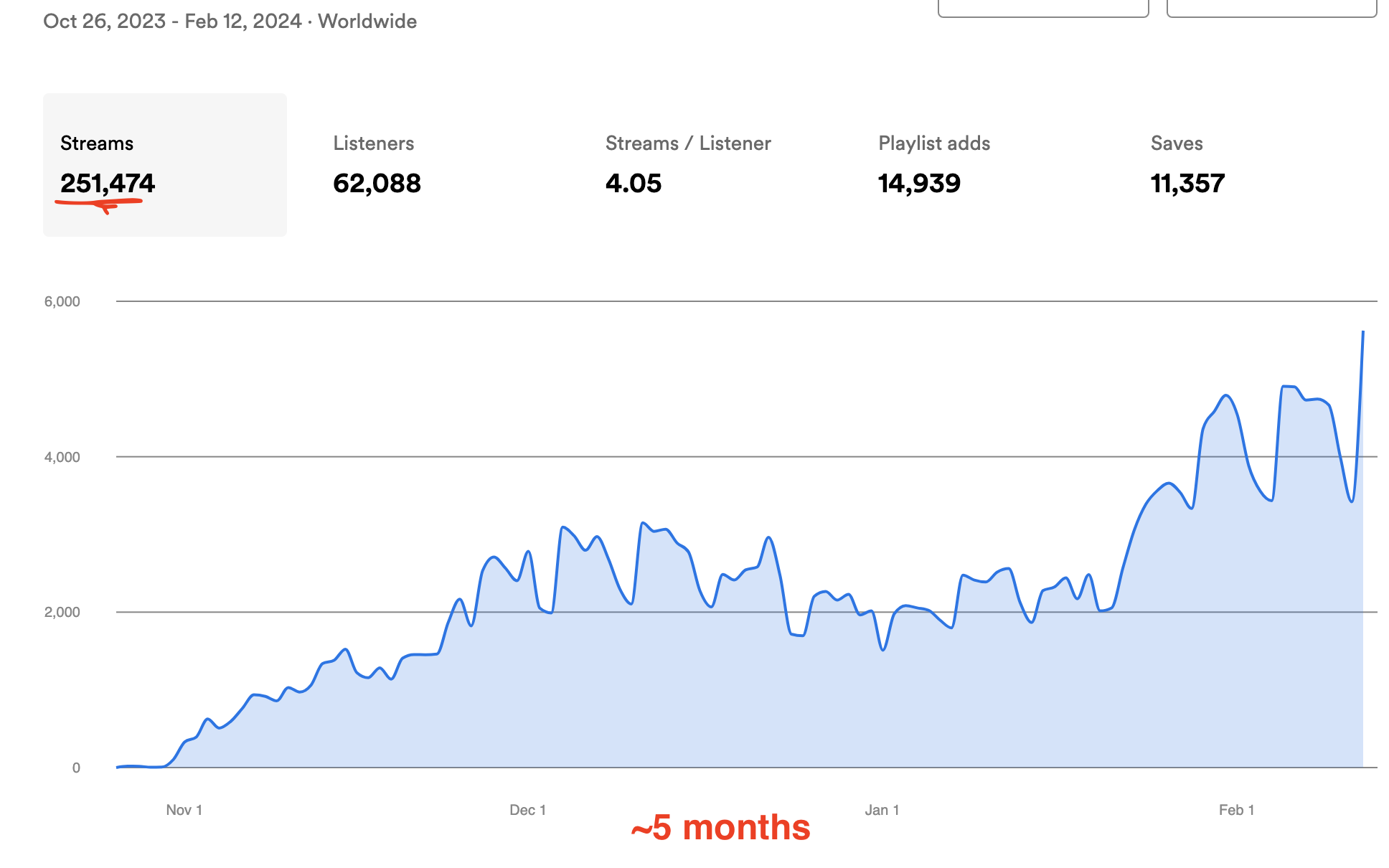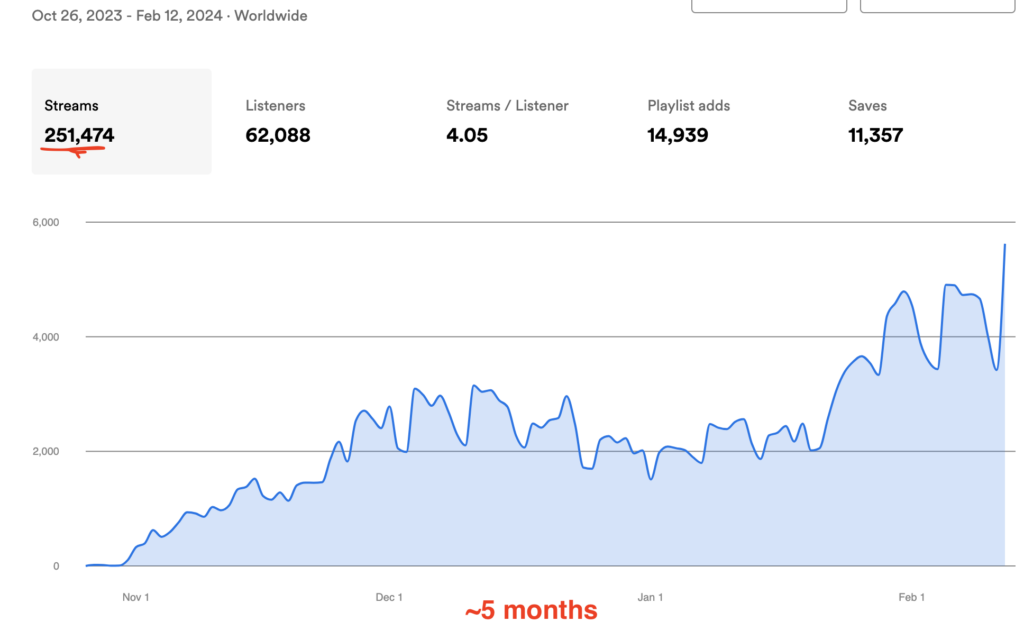“The pleasure we obtain from music comes from counting, but counting unconsciously. Music is nothing but unconscious arithmetic.” ~ Gottfried Leibniz
Although it’s a creative field, music is often compared to mathematics.
Learning music theory is like unlocking a robust code behind the sounds that can help you elevate your music career and take it to the next level. Knowing your pitch, intervals, scales, chords, rhythm, and harmony is like a new language that helps you understand and guide your creative process.
While you may not necessarily like it, there is no doubt that sooner or later in your music career, you’ll find all this information crucial for your evolution as an artist. I myself started studying music theory after years of playing by ear. Would my life be different if I had learned theory earlier? I don’t know. Still, I’m glad I did learn eventually!
When learning music theory, it’s best to start from the basics and find the pace that suits your lifestyle and schedule. Learning is supposed to enhance your creative process and not compromise it, so make sure you still find time to play your instrument, and you can apply what you’ve learned in practice stress-free.
Today I’ll introduce you to the 11 best music theory courses available this year. From academic courses and e-learning platforms to resourceful YouTube channels, if your goal is to learn the basics of music theory or explore more advanced aspects of it, here you’ll find the one that suits your needs.
Let’s dive in!
Best Music Theory Course
BerkleeX – Introduction To Music Theory
Frequently listed among the best music theory courses, Berklee offers a 6-week-long introductory music theory course. The self-paced course, taught by Berklee College of Music professor George W. Russell, Jr., alongside his students, the course requires between 3-5 hours of work every week. After completing the course, you will get a good understanding of basic theory concepts that will help you create and perform contemporary music in any genre.
Some of the things you will learn include identifying the tonal center, constructing scales, and building minor and major chords. It’s a good option for someone who needs to delve into the basics of music theory and is already playing an instrument.
Berklee Online also offers an undergraduate-level course, Music Theory 101, which provides an in-depth introduction to music theory for beginners. The 12-week course price starts from $1,290 for non-credit tuition, and there is also a possibility to acquire three university credits. On top of theory lessons, you can also participate in class discussions and get personalized feedback. The course is led by a legendary music theory teacher at Berklee, Professor Emeritus Paul Schmeling.
Berklee provides a wide array of music theory-related courses, from Ear Training courses to Introduction to Music Therapy, so if you want to explore more specific options, head over to their website.
Price: BerkleeX – Introduction To Music Theory is free to access from edX, with the ability to upgrade to receive the certification.
Understanding Basic Music Theory
“Understanding Basic Music Theory,” an expanded version of “Introduction to Music Theory,” is a comprehensive guide that provides fundamental knowledge about music theory. It covers a range of topics from rules of harmony and music notation to ear training.
EarMaster technology, an app for sight-singing practice, ear training, and rhythm training, helps you develop musical skills and understanding. With the monthly subscription starting at $3.5, this is one of the most affordable music theory courses you can find. Prepared by a team of music educators led by Catherine Schmidt-Jone at EarMaster, the course includes a number of interactive features, quizzes, and practical exercises to make your learning journey as smooth as possible. It not only helps you learn the theory but also improves your ability to play an instrument.
Price: Free, EarMaster app subscription starts from $3.5/month.
Fundamentals Of Music Theory
Another university-led course that made it to the top 3 on our list is a series of open-source videos from the Reid School of Music at the University of Edinburgh in Scotland. Suitable for complete beginners and musicians without formal training, the course is available through Coursera or in the form of downloadable videos on Media Hopper Create.
During this 8-hour course, you’ll learn how to read, analyze, and listen to music in an informed and professional way. After completing the course, you’ll have all the basic knowledge necessary to read and write music.
The course received a 4.5/5 score out of 1,680 reviews. One of the students described his experience in these terms: “Not only does it give you a lot of insight into music theory, it changes the way you look at music and leads one to appreciate music as a whole more.”
Price: Free to download or enroll on Coursera, with the ability to upgrade and receive the certificate.
Music Theory Comprehensive Complete!
One of the bestselling courses on Udemy, ranked at 4.7/5 based on 20,208 ratings, offers a comprehensive (hence the name) and intensive introduction to the music theory world. Divided into three parts, the course includes 12 hours of videos, articles, and extra downloadable materials covering over 50 topics. It seems like a lot of content, but you can set your own working pace and plan to study over a few weeks or months.
The course leader, Jason Allen, is a true renaissance man with experience as a music producer, composer, music engineer, songwriter, and a Ph.D. in music composition.
Price: $79.99 (but check for regular sales)
Getting Started With Music Theory
Also available on Coursera, this course from the University of Michigan is a complete introduction to music theory by Bruce Taggert. The course includes over 13 hours worth of content split into four modules and offers a solid introduction to music theory for complete beginners or those who have learned to play music by ear. As with any music theory course, it can also be extremely helpful when learning the basics of songwriting.
Knowing the rules of rhythm, meter, scales, triads, seventh chords, and harmony will provide the skills necessary to write songs and harmonize and notate basic melodies. If you’re interested in exploring the foundations of songwriting, check out our comprehensive selection of the best songwriting courses in 2022.
Price: Enroll for free. Upgrade to receive the certificate available.
Practical Music Theory Course for Guitar
A hands-on, practical course that will help you learn music theory and apply it to your instrument. The course is designed for guitar players, with exercises and tasks that will help you master your technique and get the most out of your practice. Over 14 hours of content is shared between 7 grades, focused on topics such as notes, octaves, major scale theory and key signatures, neck notes, chords, and scale diagrams.
The course is run by Justin Sandercoe, a music teacher with decades of experience and a musician who played with Katie Melua, Carla Bruni, and Cathy Deniss, amongst others. If you’re looking for a guitar course, I wrote a guide to the best guitar courses in 2023, including JustinGuitar, and you can check it out here.
Price: To access full course: $5.99/monthly or $44.99/ yearly. You can access the first two grades for free without adding payment details.
The Complete Piano & Music Theory Beginners Course
As you can guess, this course from Udemy addresses music piano players who are at the start of their journey with music theory. The short course includes 26 lectures of 1 hour and 18 minutes in total, but it covers the most important topics that you need to understand to start playing the instrument. From learning piano techniques and reading music sheets to learning augmented and diminished chords, after completing the lesson, you’ll have a good grasp of what it takes to be a piano player. Ranked 4.6/5 based on 2,727 ratings at the time of writing, the course is a valid option if you’re a beginner looking for a quick way to learn the basics.
Price: $39.99, but keep an eye on the regular offers.
Comprehensive Course for Music Theory
The course with Guy Michelore is advertised as “quick, practical, and fun.” What else can I ask for from a music theory course? For $49, you get life-long access to over 12 hours of video tutorials, quizzes, additional notes, and illustrations to support the course.
In the first part of the course you’ll learn the basics, and then move to the more advanced topics in the second part, such as progressions and extended chords. By the end of the course, you’ll know everything you need as a musician or a songwriter. It also includes music theory tailored for guitar players.
Price: $49 on Thinkspace.
Music Theory and Chords for Beatmakers and Producers
Created specifically with music producers and beatmakers in mind, this Udemy course dives into the details of music theory fundamentals, diminished chords, major and minor, as well as counting beats and staging in time and just making your music sound better overall. The course is designed for those who already have a basic music theory understanding, and it requires a DAW to be able to practice.
Are you also learning how to make your first beats? Check this article explaining the whole process step by step.
Riley Weller (GratuiTous), who leads the course, has over 12 years of experience in teaching beat-making and runs a podcast called “‘Music Production Made Simple.”
Price: $19.99 on Udemy, but check for regular sale offers.
Music Theory Course Yale
Available on YouTube, the course doesn’t offer a certificate, but it provides you with all the resources necessary to understand music theory during 23 lessons of roughly one hour each. The course has had 751,966 views since it was last updated in 2014. It not only describes the basics of the chords and notes but also delves into the specifics of various genres and artists, from pop and jazz through baroque music to Georgian chants.
The course leader, Prof Craig Wright, who served as chair of the Department of Music at Yale University between 1986-1992, specializes in music history and authored many books on the topic. His online music appreciation course, “Listening to Music,” gained high popularity in China, currently ranking fourth among all online music courses.
Price: Free on YouTube
Music Theory And Composition
Last but not least, though not a music theory course as such, a YouTube channel run by Rick Beato, producer, composer, music engineer, and music theorist, is a comprehensive source of knowledge on music theory, composition, ear training, and improvisation. Beato leverages 35 years of experience to create a diversified channel that can help hone your music theory understanding after you get a good grasp of the basics.
Over 600 million views and 4 million subscribers make “Everything Music” one of the most successful YouTube music channels and a resourceful base of information for anyone who wants to expand his music knowledge.
Price: Free on YouTube
Final Thoughts
Music theory for musicians is like grammar for writers. The set of rules can guide your journey and help you navigate through the convoluted paths of the creative world, giving you a base to rely on when you need it. The selection of courses provided in this article offers many options to choose from, whether you’re a complete beginner or a practicing musician looking to expand your knowledge.
If you’re still not convinced that you need music theory in your life, I will leave you with this very personal and inspiring video by Rick Beato, delving into the ups and downs of his bumpy career as a musician, producer, and, finally, a successful YouTuber. While not exactly proof that music theory is necessary to a musician, it’s a strong message never to stop learning.
He demonstrates how the knowledge we acquire during our lives can help us uncover new ways to reach our goals in the most unexpected circumstances.
Have fun!








